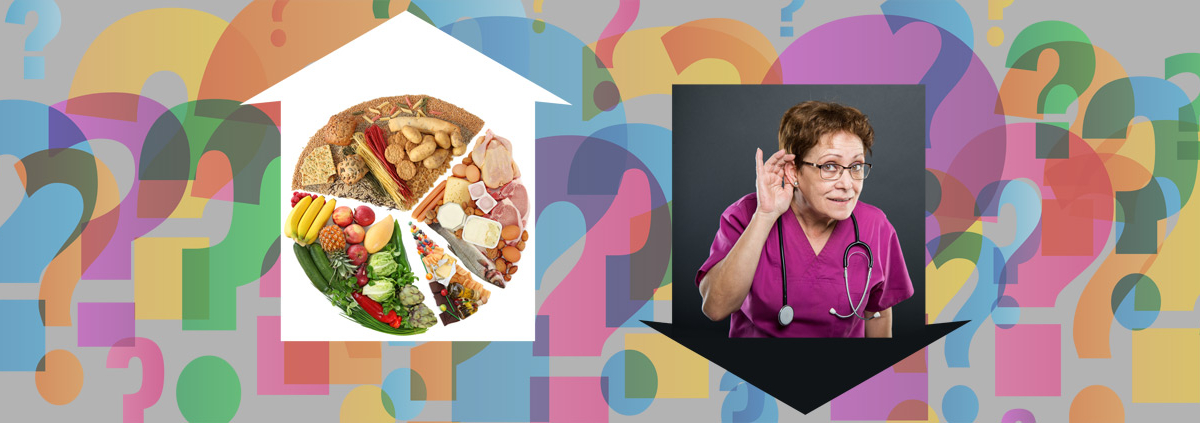Health Headline: Diet and Hearing Loss
Researchers examined nutrition data collected between 1991 and 2013 in the second Nurses Health Study to examine whether adherence to a healthier diet reduced the risk of hearing loss. They developed a scoring system for three dietary approaches: the Alternate Mediterranean Diet (AMED), the Dietary Approaches to Stop Hypertension (DASH), and the Alternative Healthy Eating Index-2010 (AHEI-2010). They also gave the subjects a hearing health questionnaire to ascertain hearing loss in 2009 and 2013. The researchers divided the diet scores into quintiles and examined the trend across increasing adherence to each of the three diets as determined by the scoring system.
Researchers reported that as the adherence to each diet increased, hearing loss decreased. Those subjects who adhered to their diet best reduced their hearing loss by as much as 30%.
Headline worthy? A split decision. I’m in favor of any reason for nurses or anyone else to eat a healthier diet with more vegetables and fruit.
Why not headline worthy? The first issue was use of the food frequency questionnaire, which relies on recall for the number of typical servings of over 150 items during the past year. Yes, you read that right; the questionnaire asks, for example, how many times you had chicken in the last year and how big was the serving. Maybe you could answer questions like that accurately, but I couldn’t. And as the old axiom about data goes: garbage in, garbage out.
Second, it used a poorly validated self-report of hearing loss from fewer than 700 subjects in just two studies. That’s good enough for a pilot study, but not good enough to make a recommendation.
Third was that when examining the median values for scores in the highest quintile across all three diet assessments, adherence was no better than 67% and as low as 50%. That means 33–50% of the time, the subjects ate foods that were not part of each diet. What made up the other half to a third? Maybe that was the secret to success.
So while these are promising results, they simply point the way to a bigger, better study to see if a better diet makes a significant difference in reducing hearing loss. However, if fear of hearing loss will motivate you to eat healthier, that’s a good outcome. But if I suspected hearing loss to be in my future, I’d take other steps in addition to eating better.
The Bottom Line
That’s my look at last week’s health headlines and the science behind them. In every case, the science did not merit the conclusions. The rush to publicize results gets headlines, but really? That’s all it does.
We can say that they provide interesting results that need further study. Even without complete info, you could take positive steps such as eating better to perhaps help avoid the conditions studied—you’ve got nothing to lose by eating more fruits and veggies.
What are you prepared to do today?
Dr. Chet
Reference: The Journal of Nutrition, nxy058, https://doi.org/10.1093/jn/nxy058.









